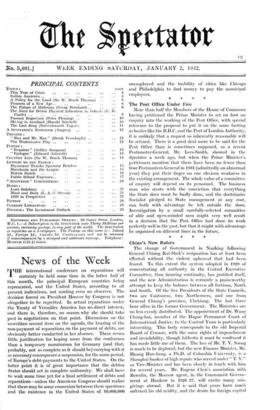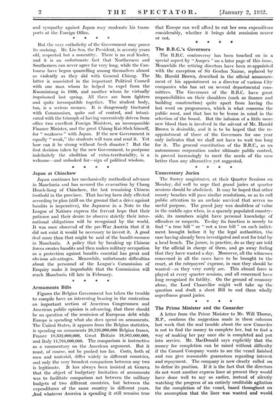China's New Rulers
The change of Government in Nanking following General Chiang Kai-Shek's resignation has at least been effected without the violent upheaval that had been feared. To this extent the system adopted in 1928 of concentrating all authority in the Central Executive. Committee, thus insuring continuity, has justified itself, and the new Administration is certainly a praiseworthy attempt to keep the balance between all factions, North and South. Of the five Presidents of the State Councils, two are Cantonese, two Northerners, and one from General Chiang's province, Chekiang. The last three bore office in the former Government. The Ministries are no less evenly distributed. The appointment of Dr. Wang Chung-hui, member of the Hague Permanent Court of International Justice, to the Control Yuan is particularly interesting. This body corresponds to the old Imperial Board of Censors, with the same rights of impeachment and inviolability, though hitherto it must be confessed it has made little use of them. The loss of Mr. T. V. Soong is much to be deplored, but the new Finance Minister, Mr. Huang Han-liang, a Ph.D. of Columbia University, is is Shanghai banker of high repute who served tinder " T. V." as Vice-Minister and has been closely in touch with him for several years. Mr. Eugene Chen's association with Borodin, the Moscow agent, in the Communist Govern- ment at Ilankow in 1926-27, will excite many mis- givings abroad. But it is said that years have much softened his old acidity, and the desire for foreign capital
and sympathy against Japan may moderate his trans- ports at the Foreign Office.
* * * *







































 Previous page
Previous page